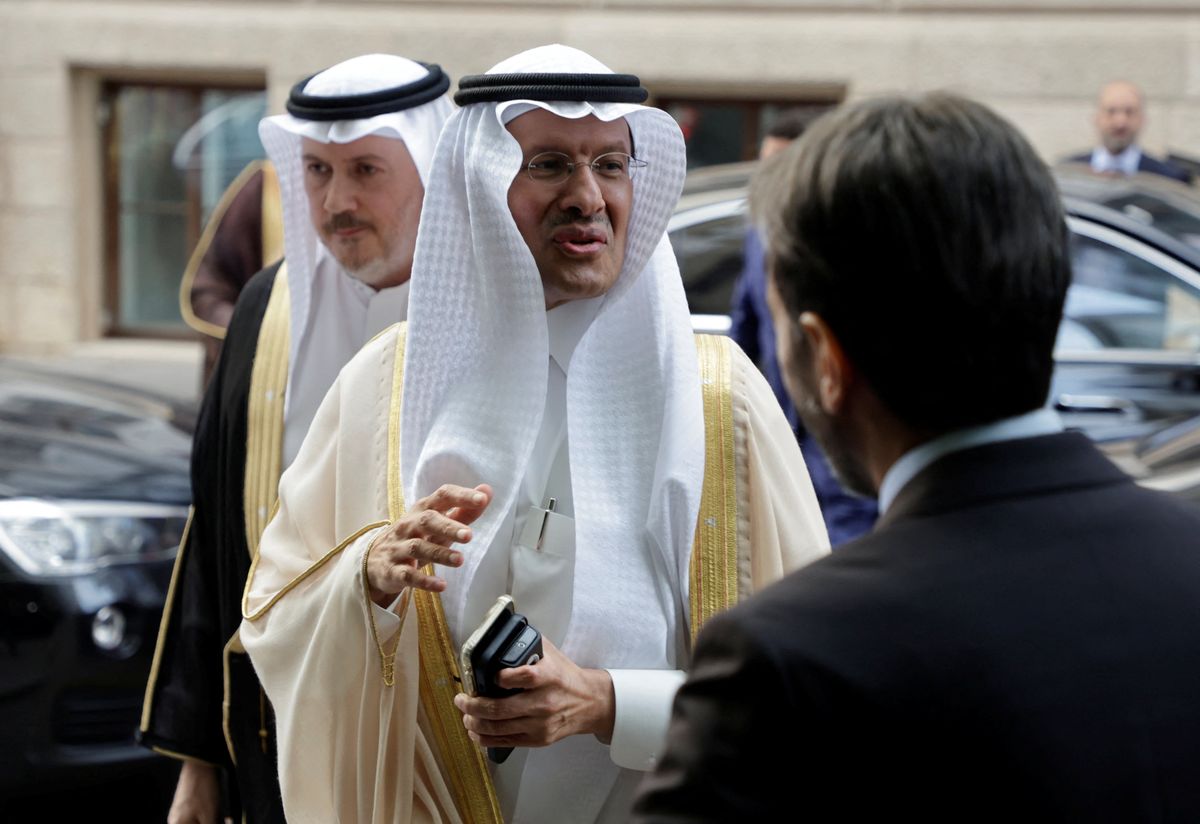OPEC and allied countries gather in Vienna for oil talks
OPEC and its buddies gathered for a two-day meeting in Vienna over the weekend.

A few minutes every morning is all you need.
Stay up to date on the world's Headlines and Human Stories. It's fun, it's factual, it's fluff-free.
The backstory: OPEC, short for the Organization of Petroleum Exporting Countries, entered the oil scene in 1960 and has 13 countries on its squad, including big oil players like Saudi Arabia, Iraq, Iran and Venezuela. Basically, its job is to keep oil prices in check on the global stage. Think of them as the referees of the oil game, making sure everything runs smoothly by controlling how much oil is on the market.
But, in 2020, OPEC and its allies (aka OPEC+) had a major disagreement when it came to deciding how much oil each country should produce. Saudi Arabia and Russia decided to throw a curveball and basically said, "No more production quotas," and walked away from a deal. Then, Saudi Arabia decided to flood the market with discounted oil, which caused prices to drop like crazy and sparked a full-on price war with Moscow. On top of that, the COVID pandemic was driving oil prices even lower. Then, a month later, OPEC+ finally reached a deal and agreed to cut global production by a massive 9.7 million barrels per day. It was a huge U-turn from the previous chaos.
More recently: In April, Saudi Arabia, the big boss of oil exporters, teamed up with other oil producers in OPEC+, cutting down oil output by an additional 1.66 million barrels per day. This was on top of an already agreed-upon cut of 2 million barrels per day through the end of the year. Why? Well, they were worried that a potential banking crisis might mess with oil demand, and they wanted to prevent prices from sinking even lower. But the folks in Washington weren't too happy about it, thinking this could drive up gas prices for consumers.
And just last week, Saudi Arabia's Energy Minister, Prince Abdulaziz, sent a message to those who were betting against oil prices. He gave them a warning to "watch out," and investors saw it as a sign that more cuts might be coming.
The development: OPEC and its buddies gathered for a two-day meeting in Vienna over the weekend. The main focus was figuring out how much oil they should pump out in the future to balance things out, especially as prices have declined over worries about demand and a weak economy. But, members keep things pretty close to the chest until all the details are finalized.
On day two of the meeting, some non-OPEC countries like Russia joined in. And to add more drama, the United Arab Emirates (UAE) shook things up by wanting to change how it measures its production cuts. That didn't sit well with some African countries who were concerned that giving the UAE more flexibility might harm them.
On Sunday, OPEC+ confirmed they’d agreed to extend the production cuts of 3.66 million barrels per day into 2024. Saudi Arabia also said it would voluntarily cut a million barrels per day on its end starting in July. On top of that, the group agreed to reduce overall production targets from next January by a further 1.4 million barrels per day. The UAE also got to slightly raise its output targets.
Key comments:
“Everything is on the table,” said Iran’s OPEC Governor Amir Zamaninia to reporters in Vienna, Austria.
“This is a grand day for us, because the quality of the agreement is unprecedented," said Saudi Energy Minister Prince Abdulaziz bin Salman, adding that the new production targets are “much more transparent and much more fair."
"Speculators, like in any market they are there to stay, I keep advising them that they will be ouching, they did ouch in April, I don't have to show my cards I'm not a poker player ... but I would just tell them watch out," said Saudi Arabia's Energy Minister Prince Abdulaziz at the Qatar Economic Forum organised by Bloomberg last week.
"We think the latest build-up in short positions significantly increases the probability of further production cuts when OPEC+ meets," said analysts at Standard Chartered bank in a note in May.




Comments ()